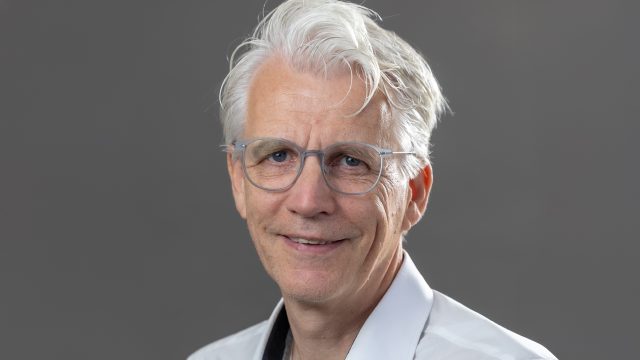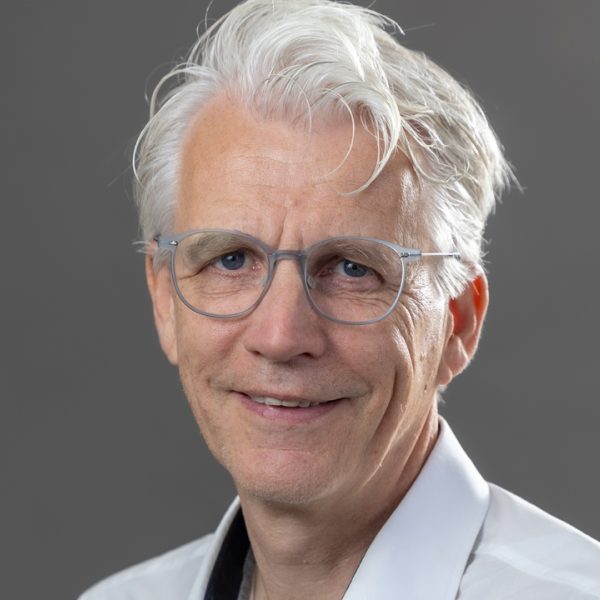
Our Focus
The first aim of our group is to unravel the mechanisms that protect genetic integrity of a normal cell, and study how these mechanisms are compromised in cancer cells to allow them to evolve more rapidly. This capacity to rapidly evolve comes at a cost of having to adapt to a new genetic make-up, sometimes involves gains or losses of entire chromosomes, and we are very interested to understand how cells manage to adapt to this type of instability. This has allowed us to uncover several liabilities that can be exploited to target cancer cells, some of which are currently being tested clinically.
In April 2024 my group and the group of Gerben Vader moved to the Princess Maxima Center, and we merged our groups. Coincident with this move we have also (further) developed 2 new research lines relevant to paediatric cancer. In the first we study the role of ecDNA, prominently present in various forms of difficult-to-treat paediatric cancers, and try to identify liabilities of ecDNA-containing cancers. In the second, we try to identify germ line-specific proteins that are expressed in paediatric cancers, as a means to identify proteins that can discriminate paediatric cancer cells from other somatic cells.
About René Medema

René Medema
My Research
Rene H. Medema started his career in 1989 in the lab of Hans Bos in Leiden as a PhD student working on signal transduction by p21ras. After his PhD he moved to the laboratory of Prof. Dr. R.A. Weinberg (Whitehead Institute, Cambridge, MA) for his postdoctoral training, working on cell cycle control. As an independent group leader he continued to study cell cycle control, first at the University Medical Center Utrecht (1995-2000) and subsequently at the Netherlands Cancer Institute (2001-2005). In 2005 he moved back to Utrecht to become professor in Experimental Oncology. In 2012, he was appointed director of research at the Netherlands Cancer Institute.
His group has made several key contributions to the general understanding of control of the cell cycle by Forkhead transcription factors, FoxO and FoxM1. In addition, work from his group has provided more insight on the role of motor proteins in spindle assembly and the consequences of chromosome missegregation on the genomic stability and viability of a tumor cell. His group was the first to show that recovery from a DNA damage-induced arrest is controlled by Polo-like kinase-1 in 2004, and his lab has since provided several major contributions to our understanding of the recovery process.
Awards
2013: Appointed member of the European Academy of Cancer Sciences
2013: Appointed member of the KNAW (Royal Netherlands Academy of Arts and Sciences)
2012: Elected member of the Academia Europea
2009: EMBO membership
2004: VICI Laureate
Key Publications
Friskes, A., Koob, L., Krenning, L., Severson, T.M., Koeleman, E.S., Vergara, X., Schubert, M., van den Berg, J., Evers, B., Manjón, A.G., Joosten, S., Kim, Y., Zwart, W., Medema, R.H. (2022). Double-strand break toxicity is chromatin context independent. Nucl. Acid Res. 50(17), 9930.
Ferninga, F.M., Raaijmakers, J.A., Hadders, M.A., Vaarting, C., Macůrek, L., Heitink, L., Krenning, L., Medema, R.H. (2018). Persistent DNA repair intermediates induce senescence. Nat. Commun. 9(1), 1.
Krenning, L., Feringa, F. M., Shaltiel, I.A., van den Berg, J., & Medema, R.H. (2014). Transient activation of p53 in G2 phase is sufficient to induce senescence. Molecular cell, 55(1), 59-72.
Janssen, A., van der Burg, M., Szuhai, K., Kops, G. J., & Medema, R.H. (2011). Chromosome segregation errors as a cause of DNA damage and structural chromosome aberrations. Science, 333(6051), 1895-1898.
Macůrek, L., Lindqvist, A., Lim, D., Lampson, M.A., Klompmaker, R., Freire, R., ... & Medema, R.H. (2008). Polo-like kinase-1 is activated by aurora A to promote checkpoint recovery. Nature, 455(7209), 119.
Members
| René Medema Group leader, CSO | Amber Hondema PhD student | Anoek Friskes PhD student |
| Elsa Coolen PhD student | Gerben Vader Associate group leader | Lenno Krenning Research associate |
| Louise Janssen PhD student | Lukas Frank PostDoc | Marco Novais da Cruz PhD student |
| Maud Schoot Uiterkamp PhD student | Mila Ilic PhD student | Rob Klompmaker Lab Manager |